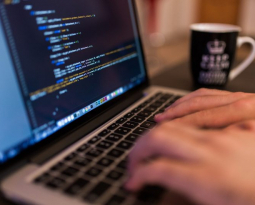Say “Goodbye” to Rowdy Airbnb Guests: Dallas-based NoiseAware develops the “Smoke Alarm for Noise”
The popularity of Airbnb has inspired countless of people to list their properties as short-term rentals for prospective guests. However, this often comes at a risk, especially if your guests don’t end up respecting the residential property’s rules. That’s the situation David Krauss, an Airbnb host in Dallas and one of the forces behind NoiseAware, found himself in one fateful weekend in December 2014. What was supposed to be a “quiet night” for the Airbnb guests in his Dallas condo quickly turned into a Coachella-style party scene that ended with 14 noise complaints, a police report, and a cease-and-desist order from his building’s management. Krauss was held as responsible for allowing the Airbnb guests into his property and his reputation in the community was irreparably damaged. He was forced to sell his Dallas property, losing $30,000 in the process.
Jessica Jubayli, an Airbnb host in Dubai, said in a Forbes article, “Part of having Airbnb properties is that they are in residential buildings in residential areas. They are not hotels. When you have pissed off neighbors, because of a couple odd bad tenants, it makes your life much more difficult.” Determined not to let the situation happen again, Krauss and co-founder Andrew Schultz developed NoiseAware. Likened to a “smoke alarm for noise”, the device can be installed in rental units, villas, and luxury properties to measure the noise level of a particular space. Users can set parameters for acceptable noise levels and for time of day. If sound levels exceed the parameters, hosts are notified by email or text instanteously, long before neighbors could get involved. NoiseAware does not record content and simply senses loud noises. Employing a special algorithm, it measures sound and noise levels sustained over a period of time and adapts to the base level of sound. As an article in Forbes notes, “So if your condo is near an emergency room, the sensors would take into account noises like ambulance sirens.” Users can also monitor sound levels in real time using the NoiseAware dashboard. At $50 per device and a $100 annual subscription service, NoiseAware estimates it helps save Airbnb hosts an average of $250 a month.
If you’re building technology that can protect property owners from rowdy guests, you could be eligible for the R&D Tax Credit and get up to 14% back on your expenses. To find out more, please contact a Swanson Reed R&D Specialist today.
Swanson Reed regularly hosts free webinars and provides free IRS CE credits as well as CPE credits for CPA’s. For more information please visit us at www.swansonreed.com/webinars or contact your usual Swanson Reed representative.

















